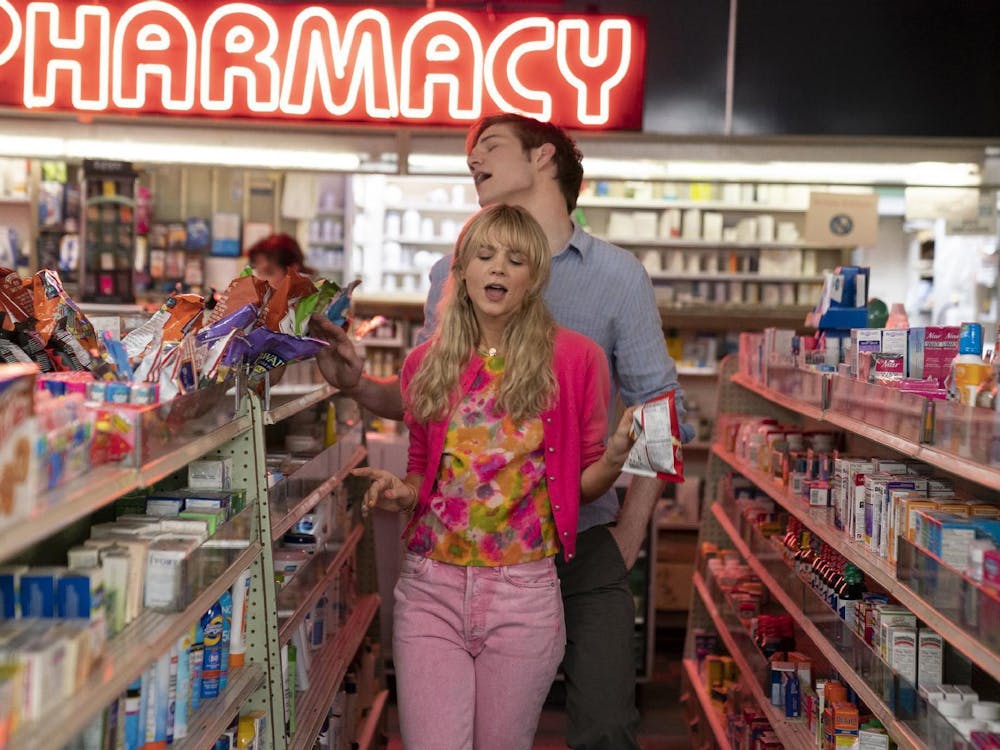CW: Sexual violence
“You’re crazy,” she might hear, or “You’re a b—,” “calm down,” “relax.” Or a fun combination of “Calm down you crazy b—!” A great deal of women can say they’ve heard these comments before, usually all for nothing more than raising her voice or refusing to smile.
In Emerald Fennell’s 2020 thriller-comedy “Promising Young Woman,” Cassandra “Cassie” Thomas (Carey Mulligan) spends her weekends pretending to be blackout-drunk in nightclubs in an attempt to see which fedora-clad horndog will try to drag her to bed. Once back to their place, though, she scares her suitor with a clearly sober lecture about their predatory behavior, which elicits those all-too-familiar responses.
While I admire Cassie’s bravery to call it as she sees it, she’s not risking her safety just to prove a point. Seven years ago, Cassie’s best friend Nina was raped by another student in their med school class. Nina hardly received any validation of this traumatizing experience — let alone justice — and died shortly after. Cassie is determined to honor her lost best friend by holding men accountable for their perverted actions.
Which, in a dark way, is applaudable: Cassie can’t bring Nina back, but she can try to make the world a safer place for other women by forcing men to think about consent. But this redemption turns into revenge when she runs into Ryan (Bo Burnham), the “nice guy” doctor who attended the same med school as Cassie. Ryan sweeps Cassie off her feet: They go to dinners and movies and giggle in the coffee shop. He’s charming, charismatic and doesn’t pressure Cassie to do anything she’s not comfortable with. But even soft-spoken, kind-eyed nice guys don’t always do the right thing.
Cassie later discovers that Ryan was at the party where Nina was raped. Not only was he at the party, but he was in the room. He was on tape, laughing with the other guys about “how f-— up this is,” as if acknowledging the crime would exonerate his guilt. Ryan’s situation makes an important point about accountability and so-called “innocent bystanders.” Even if he didn’t participate in the rape, he didn’t stop it from happening, either. He had the power to say something, even if it was to the administration or lawyers. But he, like all the other students there, brushed it off as another party incident, a drunken night shoved to the back of their memory.
Each time Cassie confronts someone about the incident and their failure to adequately respond, the conversation, without doubt, spirals into victim blaming. Other women are guilty of this too: Madison, an old classmate who is now happily married with twins, argued that Nina shouldn’t have been drunk all the time; that she shouldn’t have slept around so much. To her, she was just “crying wolf.” Director Emerald Fennell doesn’t ignore the phenomenon that, in conjunction with victim blaming, produces the violent storm of rape culture: sympathy for perpetrators.
Fennell shows this toxic sympathy almost satirically. After Al Monroe, the man who raped Nina, suffocates the protagonist with a pillow, he is comforted by his best friend and reminded that he “did nothing wrong.” He wipes his tears and covers up her death: another boy’s feelings prioritized over a woman’s life. Another case solved too late.
Funnier than the middle-aged men dancing like it’s (still) 1999 or the witty banter between Cassie and Ryan, though, is that the film’s antihero isn’t that villainous. Cassie doesn’t wield an axe or steal muscle cars or kidnap unsuspecting citizens. Her biggest threat — and her greatest power — is that she’s aware of herself. She knows that some men view vulnerability as an open invitation. But she also knows that women don’t need brute force to be powerful; their assertiveness is their weapon. She understands that men aren’t necessarily scared of what she’ll do, but rather that whatever she does will be of her own agency. Hmph. Crazy.
Get The Chronicle straight to your inbox
Sign up for our weekly newsletter. Cancel at any time.

